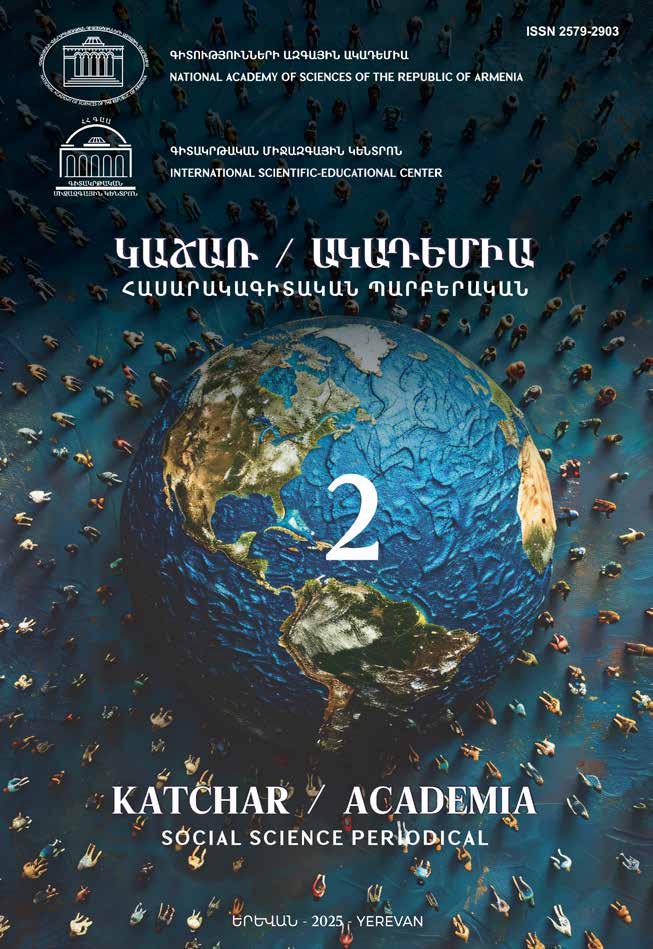THE INTERRELATION BETWEEN YOUNG SPOUSES’ INTERACTION IN CONFLICT AND THEIR PARENTS’ ATTITUDES TOWARD FAMILY LIFE
DOI:
https://doi.org/10.54503/2579-2903-2025.2-10Keywords:
young spouses, family conflicts, intergenerational transmission, parental behavior, role expectations, rearing, behavioral norms.Abstract
This article examines the connection between young spouses' conflictual interactions and their parents' attitudes toward family life, with a focus on the mechanisms of intergenerational transmission.
The research aimed to uncover how parental behavior models influence the conflict dynamics within young couples' marital relationships. The study employed the methodologies of the Parental Attitude Research Instrument (PARI) by E. Schaefer and R. Bell, as well as the Nature of Spousal Interaction in Conflictual Situations (NSICS) instrument. A total of 180 participants, including both conflictual and harmonious couples and their parents, were involved in the study.
The findings revealed that conflictual couples often inherit conflict patterns from their parents, particularly in areas such as child-rearing, role expectations, and behavioral norms. In contrast, harmonious couples tend to reflect their parents’ cooperative behavior. The main conclusion is that marital disagreements are frequently rooted in intergenerational transmission, highlighting the need for a systemic approach to address these issues.
The study emphasizes the value of family counseling in helping couples identify inherited patterns, reevaluate roles, and build emotionally stable relationships. It is recommended that future research should examine the influence of cultural and social changes on family dynamics.

Downloads
Published
How to Cite
Issue
Section
License
Copyright (c) 2025 KATCHAR / ACADEMIA. SOCIAL SCIENCE PERIODICAL

This work is licensed under a Creative Commons Attribution-NonCommercial-NoDerivatives 4.0 International License.



